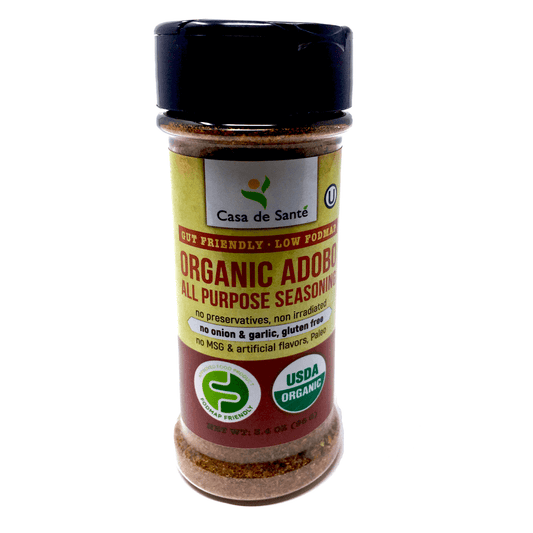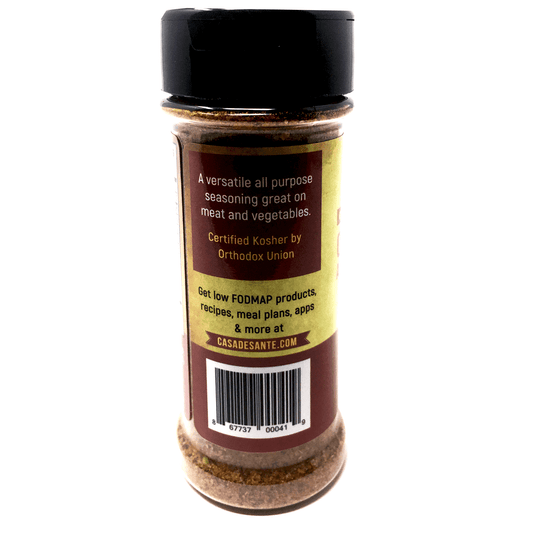Can Energy Drinks Cause Gastritis
In recent years, energy drinks have gained immense popularity among young adults and athletes alike. These beverages promise to boost energy levels and enhance performance. However, concerns have been raised about the potential adverse effects of energy drinks, including the development of gastritis. In this article, we will explore the connection between energy drinks and gastritis, understand the composition of these beverages, and discuss the prevention and treatment of gastritis. Additionally, we will delve into the ongoing debate surrounding the safety of energy drinks.
Understanding Gastritis
Definition and Symptoms of Gastritis
Gastritis is a condition characterized by inflammation of the stomach lining. This inflammation can occur suddenly (acute gastritis) or develop slowly over time (chronic gastritis).
When the stomach lining becomes inflamed, it can lead to a variety of uncomfortable symptoms. Common symptoms of gastritis include abdominal pain, bloating, indigestion, nausea, and vomiting. These symptoms can range from mild to severe, depending on the underlying cause of the gastritis.
Individuals with gastritis may also experience loss of appetite and a feeling of fullness even after consuming small meals. This can make it difficult to maintain a healthy diet and can lead to unintended weight loss.
Common Causes of Gastritis
Gastritis can be caused by various factors, each with its own unique impact on the stomach lining. One common cause of gastritis is infection with the bacterium Helicobacter pylori. This bacterium can invade the stomach lining, triggering an immune response that leads to inflammation.
Excessive alcohol consumption is another common cause of gastritis. Alcohol irritates the stomach lining, causing it to become inflamed. Prolonged use of certain medications, such as nonsteroidal anti-inflammatory drugs (NSAIDs) and corticosteroids, can also contribute to the development of gastritis.
In addition to infections and medication use, autoimmune disorders can also lead to gastritis. In these cases, the immune system mistakenly attacks the cells of the stomach lining, causing inflammation.
Diet and lifestyle factors can also play a role in the development of gastritis. The consumption of spicy and acidic foods, such as chili peppers and citrus fruits, can irritate the stomach lining and contribute to inflammation. Additionally, stress and smoking have been linked to an increased risk of developing gastritis.
It is important to note that gastritis can have multiple causes, and sometimes, the exact cause may be difficult to determine. In some cases, a combination of factors may contribute to the development of gastritis.
The Composition of Energy Drinks
Energy drinks have become increasingly popular in recent years, offering a quick and convenient way to boost energy levels. But have you ever wondered what exactly goes into these beverages? Let's take a closer look at the key ingredients that make up energy drinks.
Key Ingredients in Energy Drinks
Energy drinks typically contain a combination of caffeine, sugar, vitamins, minerals, and herbal extracts. These ingredients work together to provide a temporary boost in alertness and energy. Let's explore each of these components in more detail.
The primary stimulant in most energy drinks is caffeine. Caffeine acts as a central nervous system stimulant, helping to increase focus and reduce fatigue. It gives you that much-needed jolt of energy to power through the day.
In addition to caffeine, energy drinks often contain high levels of sugar or artificial sweeteners. These sweeteners not only enhance the taste but also contribute to the overall caloric intake. It's important to be mindful of the sugar content in energy drinks, as excessive consumption can lead to weight gain and tooth decay.
Other ingredients commonly found in energy drinks include taurine, guarana, and various B-vitamins. Taurine is an amino acid that helps regulate water and mineral levels in the blood. Guarana, a plant native to the Amazon, contains natural caffeine and is known for its stimulant properties. B-vitamins, such as B6 and B12, play a crucial role in energy metabolism.
Potential Health Impacts of Energy Drinks
While moderate consumption of energy drinks is generally considered safe for healthy individuals, it's important to be aware of the potential health impacts associated with excessive intake.
One of the main concerns is the increased heart rate and high blood pressure that can result from consuming too many energy drinks. These beverages can put a strain on the cardiovascular system, especially in individuals with pre-existing heart conditions.
Another potential issue is dehydration. Energy drinks, due to their caffeine content, can act as diuretics, causing increased urination and fluid loss. It's crucial to stay hydrated and balance energy drink consumption with water intake.
Disturbed sleep patterns are also a common side effect of energy drinks. The high caffeine content can interfere with your ability to fall asleep or have a restful night's sleep. It's best to avoid consuming energy drinks close to bedtime.
It's important to note that the effects of energy drinks can vary from person to person. Some individuals may be more sensitive to the stimulant properties of these beverages, experiencing stronger effects or adverse reactions.
In conclusion, energy drinks are a combination of various ingredients that work together to provide a temporary energy boost. While they can be enjoyed in moderation, it's essential to be mindful of the potential health impacts associated with excessive consumption. As with any dietary choice, it's always best to consult with a healthcare professional to determine what is right for you.
The Connection Between Energy Drinks and Gastritis
How Energy Drinks Can Affect the Stomach Lining
While there is limited research specifically examining the link between energy drinks and gastritis, it is plausible that the high caffeine content in these beverages can irritate the stomach lining. Caffeine, when consumed in excess, can increase gastric acid secretion, disrupt the protective barrier of the stomach, and potentially lead to inflammation.
When energy drinks are consumed, the caffeine enters the bloodstream and stimulates the central nervous system, providing a temporary boost of energy. However, this stimulant effect can also have negative consequences on the digestive system. The increased gastric acid secretion caused by caffeine can result in an imbalance in the stomach's pH levels, making it more acidic than usual. This acidic environment can irritate the delicate lining of the stomach, potentially leading to gastritis.
Furthermore, the disruption of the protective barrier of the stomach caused by excessive caffeine consumption can make the stomach more susceptible to damage from other irritants, such as alcohol or certain medications. This weakened defense mechanism can further increase the risk of developing gastritis.
The Role of Caffeine and Sugar in Gastritis
In addition to caffeine, the high sugar content in energy drinks may also contribute to the development of gastritis. Excessive sugar consumption can disrupt the balance of bacteria in the gut, promote inflammation, and weaken the digestive system's defenses against irritants.
When energy drinks are consumed, the high sugar content can have detrimental effects on the gastrointestinal tract. Sugar acts as a food source for harmful bacteria in the gut, leading to an overgrowth of these bacteria. This imbalance in the gut microbiota can result in inflammation and damage to the stomach lining, increasing the risk of gastritis.
Moreover, the excessive consumption of sugar can weaken the immune system, making it less effective in defending against harmful bacteria and viruses. This weakened immune response can further contribute to the development of gastritis.
It is important to note that while energy drinks may provide a temporary energy boost, the potential risks to the stomach lining should not be overlooked. Individuals who are prone to gastritis or have pre-existing gastrointestinal conditions should exercise caution when consuming energy drinks, or consider alternative sources of energy that are less likely to cause harm to the digestive system.
Prevention and Treatment of Gastritis
Lifestyle Changes to Prevent Gastritis
To reduce the risk of gastritis, it is essential to adopt a healthy lifestyle. This includes avoiding excessive alcohol consumption, quitting smoking, managing stress levels, and adopting a balanced diet. Individuals with gastritis should avoid foods that trigger symptoms, such as spicy and acidic foods.
When it comes to preventing gastritis, making certain lifestyle changes can make a significant difference. Excessive alcohol consumption can irritate the stomach lining, leading to inflammation and the development of gastritis. By reducing or eliminating alcohol intake, individuals can protect their stomach and minimize the risk of developing this condition.
Smoking is another habit that can contribute to the development of gastritis. The chemicals in cigarettes can weaken the protective lining of the stomach, making it more susceptible to inflammation. Quitting smoking not only reduces the risk of gastritis but also has numerous other health benefits.
Stress is a common trigger for many health conditions, including gastritis. When individuals are under stress, the body produces more stomach acid, which can irritate the stomach lining. Managing stress levels through techniques such as meditation, exercise, and relaxation exercises can help prevent gastritis.
A balanced diet is crucial for maintaining a healthy stomach and preventing gastritis. Individuals should aim to consume a variety of fruits, vegetables, whole grains, lean proteins, and healthy fats. Avoiding spicy and acidic foods is particularly important for those with gastritis, as these can exacerbate symptoms and lead to further inflammation.
Medical Treatments for Gastritis
For individuals with severe or chronic gastritis, medical intervention may be necessary. This may involve the use of medications to reduce stomach acid production, antibiotics to eradicate H. pylori infection, or medications to alleviate symptoms such as pain and nausea. It is crucial to consult a healthcare professional for a proper diagnosis and treatment plan.
When lifestyle changes alone are not sufficient to manage gastritis, medical treatments can provide relief and promote healing. Medications that reduce stomach acid production, such as proton pump inhibitors (PPIs) and H2 blockers, can help alleviate symptoms and allow the stomach lining to heal. These medications work by decreasing the amount of acid produced in the stomach, reducing irritation and inflammation.
In cases where gastritis is caused by an infection with the bacteria H. pylori, antibiotics are often prescribed. These medications help eradicate the bacteria, allowing the stomach lining to heal. It is important to complete the full course of antibiotics as prescribed by a healthcare professional to ensure the infection is fully treated.
Additionally, medications to alleviate symptoms such as pain and nausea may be prescribed. These can include antacids, which neutralize stomach acid and provide temporary relief, or medications that help regulate stomach contractions to reduce nausea and vomiting.
It is important to note that self-diagnosis and self-medication should be avoided when it comes to gastritis. Consulting a healthcare professional is essential for an accurate diagnosis and appropriate treatment plan tailored to individual needs.
The Debate: Are Energy Drinks Safe?
The Pros and Cons of Consuming Energy Drinks
Proponents of energy drinks highlight their ability to enhance alertness, improve physical performance, and provide a convenient source of energy. However, critics argue that the potential health risks associated with energy drink consumption, including gastritis, outweigh the benefits. Balancing the pros and cons of energy drinks is crucial when making informed choices about their consumption.
Regulatory Perspectives on Energy Drinks
Due to rising health concerns, regulatory bodies have implemented guidelines and regulations regarding energy drinks. These may include restrictions on marketing to minors, mandatory labeling of caffeine content, and recommendations for moderate consumption. These regulatory efforts aim to promote consumer awareness and ensure the responsible use of energy drinks.
In conclusion, while the specific link between energy drinks and gastritis is not yet fully understood, it is important to consider the potential risks associated with excessive consumption. Moderation, adopting a healthy lifestyle, and seeking medical advice when necessary are key to maintaining a healthy digestive system. As with any dietary choices, it is essential to stay informed and make decisions that prioritize our overall well-being.























